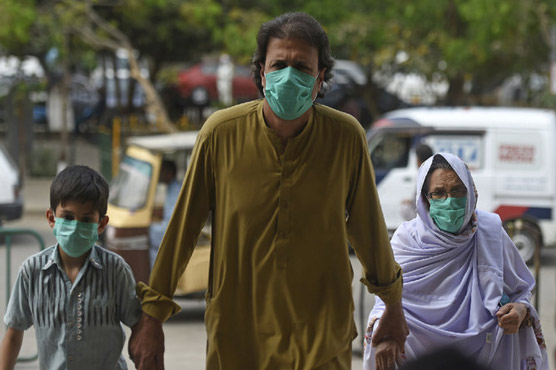"Hot outside or cold outside, you are still going to get transmission:" Stanford expert

Relman says more research into how climate does play a role in the spread of this corona is needed
(Reuters) - An infectious disease expert at California’s Stanford University says we don’t know enough yet about how changes in seasonal weather might affect the new coronavirus, dimming hopes that less densely populated and warmer-climate cities might escape the worst of the pandemic, and that summer months could see it wane.
David Relman says scientists cannot be sure if the coronavirus is seasonal, because it has not been around long enough to gather enough evidence.
"If you look at some of these other viruses and ask what about when they first emerged and entered the human population, what happened then? In the case of new influenza viruses, pandemic influenza viruses, they didn’t really show much seasonality in their first years of living with humans. It took quite some time for them to become seasonal," said Relman, who teaches microbiology and immunology at Stanford.
"These viruses ... are not so mindful of time of year. They care much more about whether there are susceptible humans close enough together for it to jump from one to the next."
"And while it may be that outdoor temperature has some impediment or impeding effect on the ability of the virus to jump from one person to another, I think if you get enough susceptible people close enough, it really won’t matter whether it is hot outside or cold outside, you are still going to get transmission, you know, that exceeds our ability to control it," he added.
Relman says more research into how climate does or does not play a role in the spread of this coronavirus needs to happen.
Some experts had hoped that warm weather and the coming summer months in the northern hemisphere would be natural buffers against the coronavirus but Relman said the spread of the virus in New Orleans suggests otherwise.
"While there are tantalizing suggestions that perhaps in some cases warmer places have less transmission, it is by no means uniform," he said.
"Look at New Orleans. New Orleans has a terrible, explosive outbreak right now and New Orleans is one of the warmest places in the United States right now as well. So, just being warm and humid is not sufficient to, you know, prevent rampant or widespread transmission."
The World Health Organization has said that there was no evidence that temperature would play a role in the coronavirus pandemic but it was an avenue worth exploring. Back in February, U.S. President Donald Trump said the coronavorus could be gone by April as warmer weather arrived.
"Should we make policy based on the assumption that this is true? In my humble opinion, no," warned Relman.
"And that is because if we make those decisions now and we are wrong which I think we may well be, at least in assuming that there’s a big effect of summer time, we will have lost all of the intervening weeks of, you know, potential, critical benefit of social distancing and the things we are doing now that we won’t be able to make up come summertime when we realize that perhaps we were wrong."
The 2002-2003 epidemic of severe acute respiratory syndrome (SARS) eased over the summer months, although it is not clear if that was related to weather or coincided with tighter public health interventions.

